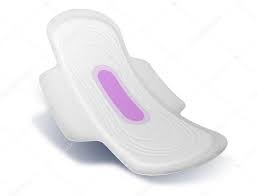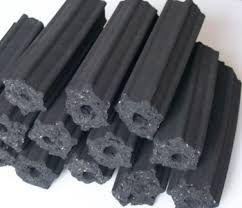Sanitary Pad and Diapers Production in Nigeria; The Feasibility Report.

A diaper or nappy is a kind of underwear that allows one to defecate or urinate in a discreet manner. When diapers become soiled, they require changing; this process is often performed by a second person such as a parent or care-giver.
Diapers are primarily worn by children who are not yet potty trained or experience bed wetting. However, they can also be used by adults with incontinence or in certain circumstances where access to a toilet is unavailable. These can include the elderly, those with a physical or mental disability, and people working in extreme conditions such as astronauts.
It is made up of synthetic disposable materials or cloth. Cloth diapers consist of several layers of fabrics such as hemp, cotton and bamboo and are washable and reusable. Disposable diapers, on the other hand, are thrown away after use and are made up of absorbent chemicals.
The inner lining of these diapers is produced using polypropylene, which prevents the outer cloth from being soiled by absorbing or containing the waste. In recent years, the advancement in manufacturing technologies has improved the design, biodegradability and safety of diapers, owing to which they have gained immense traction across Nigeria.
With the rising adult population, the prevalence of urinary incontinence has increased across the Nigeria. Along with this, the high birth rates in emerging economies, delayed toilet training of children and the increasing trends of online purchase of baby diapers have boosted the market growth.
The global diaper market reached a value of US$ 69.5 Billion in 2020 and the market value is projected to reach US$ 114.3 Billion by 2027, exhibiting a compound annual growth rate (CAGR) of eight point one percentage (8.1%) during 2022-2027.
Sanitary napkins, also known as menstrual or sanitary pads, are absorbent items that are worn by women primarily for absorbing menstrual blood.
They comprise numerous layers of quilted cotton fabric or other super absorbent polymers and plastics. They are currently available in various shapes and sizes, with different absorption capabilities. For several years, women have relied on homemade cotton clothes to deal with the menstrual cycle.
However, the growing awareness among women about feminine hygiene has spurred the demand for sanitary napkins across Nigeria.
The global sanitary napkin market reached a value of US$ 23.63 Billion in 2020 and the market is expected to grow at a compound annual growth rate (CAGR) of four point seven percent (4.7%) during 2021-2026.
With a population of over two hundred million (200,000,000) people and an estimated national population growth rate of five point seven percent (5.7%) per, Nigeria has a large, growing and sustainable market for sanitary napkins, baby and adult diapers.
The annual demand for sanitary pads and diapers in Nigeria is put conservatively at six hundred million (600,000,000), while the total production is less than eighty million (80,000,000). The shortfall of about five hundred and twenty million (520,000,000) is yet to be met locally or imported from oversea countries (Federal Ministry of Health Publication- September, 2010)
This has severe disadvantages like price fluctuations, depletion of foreign reserves, non-acquisition of the relevant technology etc.
The above situation of shortfall in supply is reversible since sanitary pads and Diapers production is one of the most viable industries that one can establish on a small-scale and medium level in Nigeria.
This is because all the raw and packaging materials input can be obtained locally. Though the technology for the production of sanitary pads and diapers is imported, the production is not sophisticated. The technology can easily be transferred to experienced workforce in Nigeria.
The huge-supply gap of five hundred and twenty million (520,000,000) sanitary pads and diapers per annum presents golden opportunities for Nigerian investors to tap.
This report is to examine the financial viability or otherwise of establishing a sanitary napkin, baby and adult diapers production plant in Lagos state using Pulp, Tissue, P.E Film, Hot- melt gum, Non- Woven fabric, Release belt and packaging materials as raw materials.
The capacity of the plant is five hundred (500) pieces per minute capacity for the Sanitary Napkin Plant and three hundred (300) pieces per minute capacity Diapers Plant and the plant would operate at eighty percent (80%) of the installed capacity working for double shift of eight (8) hours per day and three hundred (300) working days per annum.
Table of Contents
EXECUTIVE SUMMARY 1.0 Business Overview 1.1 Description of the Business 1.2 Vision and Mission Statement 1.3 Business Objective 1.4 Value Proposition 1.5 Critical Success Factor of the Business 1.6 Current Status of Business 1.7 Description of the Business Industry 1.8 Contribution to Local and National Economy 2. Marketing Plan 2.1 Description of product 2.2 Product Packaging and delivery 2.3 The Opportunity 2.4 Pricing Strategy 2.5 Target Market 2.6 Distribution and Delivery Strategy 2.7 Promotional Strategy 2.8 Competition 3. Production Plan 3.1 Description of the Location 3.2 Raw Materials 3.3 Production Equipment 3.4 Production Process 3.5 Production Cost 3.6 Stock Control Process 3.7 Pre-Operating activities and expenses 3.7.1 Operating Activities and Expenses 3.8 Project Implementation Schedule 4.0 Organizational and Management Plan 4.1 Ownership of the business 4.2 Profile of the promoters 4.3 Key Management Staff 4.3.2 Management Support Units 4.4 Details of salary schedule 5. Financial Plan 5.1 Financial Assumption 5.2 Start up Capital Estimation 5.3 Source of Capital 5.4 Security of Loan 5.5 Loan Repayment Plan 5.6 Profit and Loss Analysis 5.7 Cashflow Analysis 5.8 Viability Analysis 6.0 Business Risk and mitigation factor 6.1 Business Risks 6.2 SWOT Analysis
Project Specification:
Additional Info
Get this Report
Direct bank transfer
To order the report, Please do pay the sum of ₦200,000 into
Account Name : Foraminifera Market Research Ltd
Account Number : 274 20 569 37
Account Name : Foraminifera Market Research Ltd
Account Number : 101 76 603 95
Account Name : Foraminifera Ventures
Account Number : 011 66 066 32
Make your payment directly into our bank account. Please use your Order ID as the payment reference. Your order will not be shipped until the funds have cleared in our account.
Instructions
After payment call us on 01 -29 52 413 / 08033782777 or email us at foraminiferamarketresearch@yahoo.com with the payment details. After payment confirmation, the soft copy of the report would be sent to you within 24 hours.



